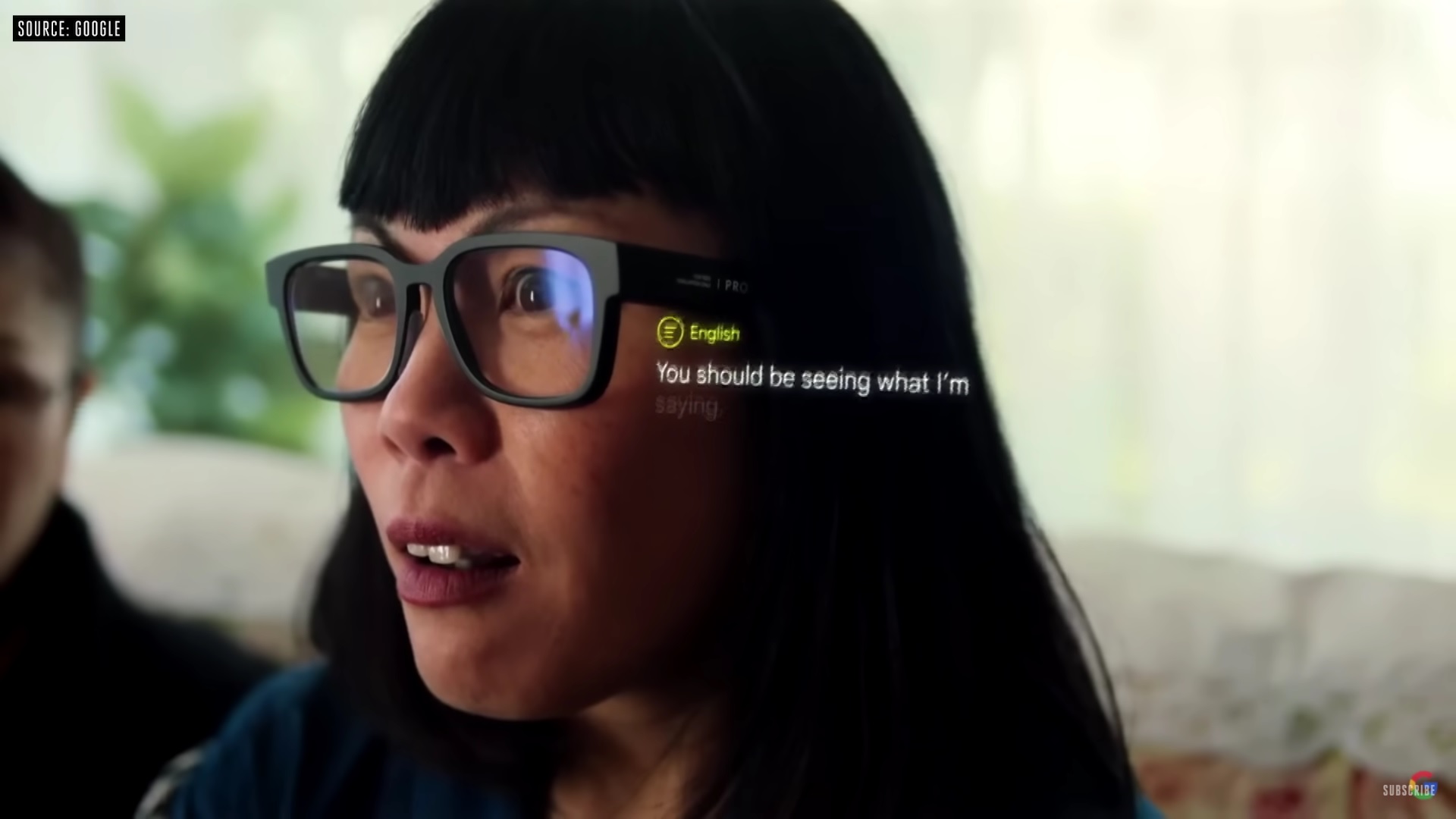Samsung's mixed-reality smart glasses could bring Google's Project Astra to life
A smart glasses switcheroo

One of the many announcements made at Samsung's February 2023 Galaxy Unpacked event was that the South Korean tech giants were teaming with Google and Qualcomm to create a new mixed-reality platform.
The trio of Samsung, Google, and Qualcomm were originally presumed to be working together on a high-end mixed-reality headset to rival the Apple Vision Pro.
However, during a recent CNBC interview, Qualcomm CEO Cristiano Amon (hot off the heels of unveiling the company's latest 8-core Snapdragon X Plus chips at IFA Berlin) revealed that tech's supergroup is actually working on a pair of mixed-reality smart glasses that are designed to connect to smartphones.
See also: Samsung Smart Glasses in January 2025? Here's everything we know so far
Whether or not this is a separate project or a replacement for Samsung's headset is unknown, but given the Vision Pro's lackluster impact and Meta deciding to shelve its high-end Quest Pro follow-up, we'd venture that it's smart glasses all the way for Samsung going forward.
Samsung XR glasses: A smart glasses supergroup
Should these mixed-reality smart glasses be the project alluded to at last year's Galaxy Unpacked event, the trio's partnership would likely see Samsung handle the hardware side of the smart glasses, Qualcomm supplying the processor through its Snapdragon XR family of chips (the same used by the Meta Quest 3), and Google supply the software — which would likely see Samsung's mixed-reality smart glasses bring Google's Gemini AI-powered Project Astra from concept to reality.
"They want a partner to bring it to market ... Google has no real vision or ambition in driving the XR space"
Former Google department lead
Project Astra was showcased earlier in the year at Google I/O, and revealed the company's efforts to supply its multimodal AI assistant, Google Gemini, with visual cues and context to help with complex, voice-activated prompts. In a video demo released by Google, Astra is seen in action on a smartphone, before switching to a pair of smart glasses.
Sign up to receive The Snapshot, a free special dispatch from Laptop Mag, in your inbox.
Once running through the glasses, Gemini could share the sight of the wearer and answer prompts based on what the wearer could view, while also displaying subtitles on the lenses themselves.
While Project Astra's reveal piqued people's curiosity over a potential revival of Google Glass, a former Google department lead with ties to the project believes this isn't the case. Speaking exclusively to Laptop Mag, the former department lead had claimed that "They [Google] want a partner to bring it [Project Astra] to market ... Google does not want the glasses to be Pixel Glasses."
They continued by informing Laptop Mag that "Google has no real vision or ambition in driving the XR space" making it far more open to working with others on future smart glasses projects — especially if that means preventing Meta's expanse across the mixed-reality market, with our source also revealing:
"The only reason Google is in the game is because Samsung decided they want to build something. And Google stepped in to block Samsung from doing the deal with Facebook/Meta."
A smart glasses showdown for 2025
Samsung's Galaxy Unpacked even in June 2024 saw Samsung's President and Head of Mobile Experience, TM Roh, state that the company's new XR platform would be "coming this year."
With only a few dates left on the calendar for Samsung to make good on that promise, the most likely date for this project's unveiling will be at the Samsung Developer's Conference on October 3, 2024.
This would likely see the release of Samsung's XR smart glasses pushed into 2025, where it will potentially face stiff competition from Meta's third-generation smart glasses — which are also said to feature an in-lens display referred to internally as a viewfinder.
Word of Meta's upcoming smart glasses comes from a leaked roadmap presentation where it was revealed that the company's next smart glasses would include a viewfinder display for reading messages, translating text visually, and even scanning QR codes at a glance.
Reportedly, Meta's smart glasses will also be paired with neural interface wristbands that allow the wearer to interact with the in-lens display via subtle hand gestures that are picked up through the registering of electrical signals passing through your arms.
Outlook
While some may be disappointed by Samsung's departure from mixed-reality headsets, its switch to smart glasses may result in an even more exciting product and the addition of one of the most advanced wearables the company has developed to date joining its excellent Galaxy catalog of devices.
However, it will place the company's new wearables in direct competition with Meta, who have a wealth of experience when it comes to both augmented reality and smart glasses already under its belt.
Should Samsung, Google, and Qualcomm's partnership result in a consumer-facing product, it could provide some much-needed competition to Meta on the smart glasses front, and hopefully help to propel each company into making the most of this wearable's incredible potential.
More from Laptop Mag
- What will the future of Meta Quest headsets look like?
- Meta Quest headsets just became a vital accessory for PS5, Xbox, and Nintendo Switch consoles
- I gave up my laptop for this XREAL spatial computer and smart glasses combo, I felt like I was living in the future

Rael Hornby, potentially influenced by far too many LucasArts titles at an early age, once thought he’d grow up to be a mighty pirate. However, after several interventions with close friends and family members, you’re now much more likely to see his name attached to the bylines of tech articles. While not maintaining a double life as an aspiring writer by day and indie game dev by night, you’ll find him sat in a corner somewhere muttering to himself about microtransactions or hunting down promising indie games on Twitter.

